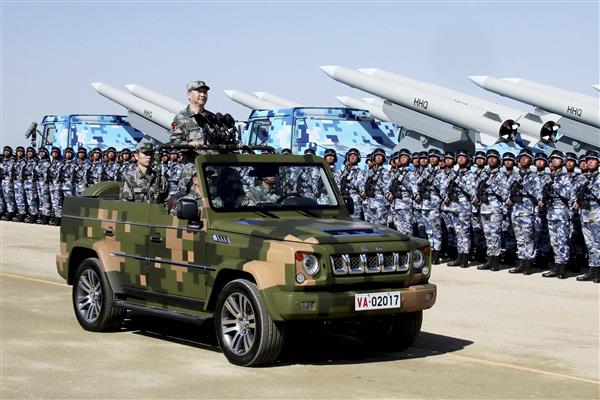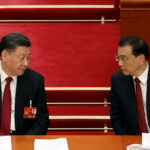China will increase defence expenditure by 7.2% this year
Beijing: In response to Premier Li Keqiang’s call for the armed forces to improve combat readiness, China will increase defence expenditure by 7.2% this year, slightly faster than the rise of the previous year and faster than the government’s moderate economic growth projection.
This is the ninth consecutive year of a single-digit increase. As in previous years, no breakdown of the expenditures was provided; only the total quantity and the rate of growth were provided.
As the world’s second-largest economy confronts domestic headwinds, the expenditure increase outpaces the targeted economic growth of around 5%, which is slightly below last year’s goal.
Beijing is concerned about threats on fronts spanning from Chinese-claimed Taiwan to U.S. naval and air missions near Chinese-occupied islands in the disputed South China Sea.
In August of last year, China conducted military exercises near Taiwan in response to the visit of then-U.S. House Speaker Nancy Pelosi to Taipei.
In his report to the annual session of parliament, Li stated that military operations, capacity development, and combat readiness must be “well-coordinated” in order to accomplish significant objectives.
Also read: China Sets Economic Growth Targets For 2023 At Five Percent, Lowest In Decades
“Our armed forces, with a focus on the objectives for the 100th anniversary of the People’s Liberation Army in 2027, should strive to conduct military operations, increase combat readiness, and enhance military capabilities,” he said in his address to the largely rubber-stamp legislature.
China, which has the world’s largest military in terms of personnel, is introducing a significant quantity of new equipment, including aircraft carriers and stealth fighters.
Its development and Beijing’s strategic intentions have prompted concern in the region and in Washington, particularly given the recent escalation of Taiwan-related tensions.
Beijing asserts that its military expenditure for defensive purposes is a relatively small proportion of its gross domestic product and that critics seek to demonise it as a threat to international peace.
“The armed forces should intensify military training and preparedness across the board, devise new military strategic guidance, devote more energy to training under combat conditions, and make coordinated efforts to bolster military work in all dimensions and domains,” said Li.




